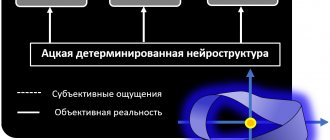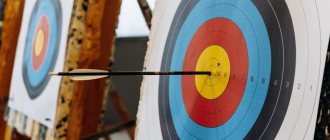Most of us regularly say to ourselves, “If only I had more willpower.” However, is it actually possible to develop it? And if so, what's the best place to start?
Some of these situations will seem familiar to you:
- You want to become a morning person, but when the alarm goes off, you cut yourself some slack and continue to sleep.
- You decide to switch to a healthier diet, but unexpectedly you order from McDonald's.
- You think it would be a good idea to hit the gym and lose a few extra pounds before summer starts, but after a long day at work you find yourself on the couch watching TV.
Yes? You are not alone. Science has some answers to the question of how to develop willpower that may surprise you.
Why should we care about willpower?
Roy Baumeister, one of the leading researchers on willpower, notes:
The root cause of most of the problems that plague our people today—addictions, overeating, crime, domestic violence, sexually transmitted diseases, prejudice, debt, unwanted pregnancies, lack of education, poor performance in school and work, lack of funds, lack of exercise—is to one degree or another low level of self-control. Psychology has identified 2 main parameters that seem to provide an extremely wide range of benefits: intelligence and self-control. Despite many years of attempts, psychology has not figured out what a person can do to permanently increase the level of mental abilities. But strengthening self-control is quite accessible. Therefore, self-control is a rare and powerful tool that psychology can use to make tangible and beneficial changes in the lives of ordinary people.
Research in this area strongly supports the idea that increasing a person's willpower has a positive effect on all areas of their life.
People who are more self-controlled have better health, more stable and happier relationships, higher earnings, and more successful careers. Not surprisingly, those with stronger willpower are also happier. Therefore, declaring your willingness to work on your willpower may turn out to be one of the best decisions in your life.
A weak-willed person is a dependent person
“I’m 25 years old, but I already feel “broken” like I’m an old man. I grew up in a not very prosperous environment - my father drank, my mother worked constantly, and there were problems at school. Everyone around me constantly told me that I was a good-for-nothing person. And even having grown up and moved away from my parents, the thought that I am a loser and a weakling cannot leave me. I can't get rid of her. Whatever I have planned, I’m afraid to start and take the first step, it seems that my train has already left. This is very disruptive at work. Perhaps this is why I am not promoted up the career ladder, although I have been in the company for many years. What can I say - I’m even afraid to go on dates with girls. Of course, he is still not married. I want to change my life, but nothing works out for me - some kind of stupor. I tried to start small - at least quit smoking. But no, I can’t go longer than a couple of weeks without cigarettes. I know that I need to develop willpower, but I don’t understand how to achieve this.”
— Evgeniy, 25 years old
A person with weak willpower risks becoming an eternal slave to his desires and habits. He, led by blind instincts, sooner or later completely loses control over his life.
Let us help you develop willpower
BUY ] WATCH VIDEO ABOUT THE SERVICE[/anchor]
It seems that there is nothing wrong with living an easy life - without self-control and discipline. But over time, this becomes a habit; numerous “indulgences” prevent you from developing and achieving your goals. A simple example can be given. At first, a person simply allows himself to sleep a little longer in the morning, and then, when willpower stops “working,” problems begin with constant lateness to work.
Weak-willed person:
- susceptible to manipulation by people around him,
- is in the grip of bad habits,
- indecisive,
- disorganized,
- dependent,
- lazy,
- susceptible to depression.
One of the characteristic features inherent in weak-willed people is awareness of the existing problem. Yes, they know that lack of self-control makes life difficult, but they do nothing to correct the situation. Perhaps they have a strong desire to change something, but a “deficit” of will prevents them from saying a clear “no” to their desires and starting to act boldly.
Research shows that the overwhelming majority of personal and social problems arise precisely against the background of undeveloped self-control. Psychologists give the following examples of consequences - a tendency to excessive spending and bank loans, impulsive violence, alcohol and drug abuse, cravings for unhealthy diets. [2]
What is willpower?
To understand how willpower works, we first need to figure out what we mean when we use the word.
We all think we understand what we are talking about. However, how do scientists studying the subject determine willpower? In her book Maximum Willpower, Professor Kelly McGonigal, who teaches The Science of Willpower at Stanford, mentions three different aspects of this phenomenon:
- The power of “I Won’t” is the ability to resist temptation.
- The power of “I will” is the ability to do what needs to be done.
- The power of “I want” is the individual’s awareness of his long-term goals and desires.
According to McGonigal, willpower is directly related to using power over these “I wills,” “I won’ts,” and “I wills” to achieve one’s goals and avoid trouble.
Why am I doing this?
Motivation is what fuels willpower in the first place and is its strong foundation. If you don’t understand why you should do something, then it’s not surprising that you will shirk every time, and no exercises, tricks or life hacks will help you.
Therefore, start developing willpower from the main thing. Take time to figure out the goals you want to achieve in life and in the short term. By the way, in our opinion, this topic is described very well in J. Canfield’s book “A Whole Life.” Once you understand your goals and the actions you need to take to achieve them, it will be easier for you to activate your willpower.
It's even better if you paint a vivid picture in your head of how you will look, think and feel when you achieve your goal. Imagine it before your eyes every time you are tempted to deviate from your chosen path, and you will be able to resist. Let your willpower become better day by day by your conscious choice, and not by the influence of life's blows and circumstances. Remember your goals and never give up. As Michael Jordan said, “You're not a loser until you give up.”
Where do we get willpower from?
Willpower is an amazing phenomenon.
Indeed, some scientists even say that perhaps it is what makes a person human. This is logical, because there are no other animals with such a developed ability to control their impulses. What made us so special? Ancient people lived in a society where the survival of each individual was very dependent on the group. To get along with others, everyone needed to control their impulses. This had a huge impact on the brain and led to the development of impulse control techniques that could get a person into trouble.
Our current ability to fight our impulses is the result of several thousand years of adaptation to an increasingly complex social environment.
Watch your speech
It will undoubtedly be useful to correct your own speech. Remove swear words, junk words, various abbreviations and jargon from your vocabulary. Every time you feel like using a strong word, mentally stop yourself. Stop being like other people and using newfangled abbreviations in greetings. Make sure your speech is correct and clear. In this way, you will consciously turn your own will against your instincts. This path may seem especially long and thorny, but at the end of it your prize awaits in the form of new natural and pure speech habits.
If you have too many junk words in your vocabulary, work in stages. To do this, select a short period of time during which you will change only certain words. When you, through repeated repetitions, get rid of the first batch of unnecessary words, you can move on to the next stage and so on.
Mini braids: quick simple hairstyles for a walk or remote work
And a little geometry: fresh spring manicure ideas with the main colors of the year
Developing mindfulness: how to increase attractiveness according to science
The Brain and Willpower: Meet the Prefrontal Cortex
The prefrontal cortex is the part of the brain located just behind the frontal bone and the eyes.
Throughout evolution, it mainly controlled physical movements (walking, running, climbing, etc.). Over time, it not only grew larger, but also strengthened connections with other parts of the brain and took on some new functions. The prefrontal cortex is now responsible for your actions, thoughts, and even feelings. The prefrontal cortex has 3 independent sections that control various aspects of willpower:
- The left lobe of the prefrontal cortex is responsible for the “I will” part.
- The right lobe is in charge of the “I won’t” area.
- And the lower middle beat serves “I want.”
Together, these departments provide our self-control and self-awareness, or, in other words, our willpower.
The importance of the prefrontal cortex is best illustrated by cases where people have suffered injuries that affect this particular part of the brain. In 1848, Phineas Gage, a calm, polite, and hard-working foreman, found himself in a situation that resulted in a very serious head injury that damaged his prefrontal cortex. The injury changed him forever. Friends could not recognize Gage: he had turned into an irritable, impulsive person - literally the opposite of himself.
Phineas's case is one of many examples of what happens when a person suffers from damage to the prefrontal cortex. This makes it clear that willpower is not something mystical, but just one of the functions of our brain.
PSYCHOLOGICAL COUNSELING and PSYCHOTHERAPY
“Our personality is a garden, and our will is its gardener” W. Shakespeare
The relevance of this article is due to the fact that in modern society, where parents spend more time at work without paying due attention to the child, problems arise in education. Thus, due to a lack of time and knowledge in the psychological and pedagogical sphere, children are allowed virtual games that replace didactic ones, and characters from “Monster High”, “Pet Shops”, etc. become heroes of fairy tales,
As we see in [Fig. 1], parents are not stopped even by the price in order to please their child. “Monster High” costs 2 times more than the “Nastenka” doll.
Fig.1
Monster High costs 2 times more than the Nastenka doll
At the same time, “taking into account the imitative nature of the child’s actions, an important factor in the formation of volitional qualities is the personal example of parents, educators and other persons who have influence on him (Bozhovich L. I. 1995). Thus, negative characters form a destructive attitude towards the world. In this way, a state of lack of will is acquired, manifested in such qualities as laziness, stubbornness, pliability, suggestibility, indecisiveness, cowardice, timidity.
Didactic games are a type of educational activities organized in the form of educational games that implement a number of principles of gaming, active learning and are distinguished by the presence of rules, a fixed structure of gaming activity and an assessment system, one of the methods of active learning (V.N. Kruglikov, 1988).
It is known that the main criterion for the development of will and arbitrariness are didactic games, the personal example of adults, as mentioned above, fairy tales “heroes who overcome incredible obstacles, experience significant hardships and difficulties, but never give up on the decision made and achieve their goal. And, despite long wanderings, they find their Princess or Princess, kill the evil Koshchei the Immortal, become kings and kings - in general, they achieve their goals and, by the way, do not stop there.” [1]
At the same time, parents have questions about why their child has become capricious and stubborn, not realizing their mistake in nurturing the child’s will, expressing that they themselves please him in everything, satisfy his every desire, and do not make demands that should they are unconditionally followed, they are not taught to restrain themselves, to obey certain rules.
Due to the fact that parents remain poorly studied and unaware of the problem of the importance of the formation of will and volition in children, there is a need for our article, which is aimed at reviewing the general process. Showing a complete picture with its own set of facts and points of view. Our task is to study psychological and pedagogical literature on the topic “Formation of will and volition in preschool age” and, on the basis of this, systematize information in order to help parents organize their knowledge, give them a point of support that would allow them to raise their children to be purposeful, decisive, courageous , proactive, persistent, independent, having self-control and discipline, i.e. inherent qualities of the will.
Let us consider the essence of the concept of will and arbitrariness. Will and arbitrariness are psychological formations that are different in content. The development of will is associated with the formation of the child’s motivational sphere; the development of volition is determined by the formation of awareness and indirectness of one’s behavior. At the same time, will and arbitrariness are united in their genesis.
Will is a person’s conscious regulation of his behavior and activities, expressed in the ability to overcome internal and external difficulties when performing purposeful actions and deeds (Rogov E. I. 2001). The task of the will is to control one’s own behavior, conscious self-regulation of activity, especially in cases where obstacles to normal life arise (V.M. Kholmogorova et al.) If you look inside the human body, you will find that self-regulation is based on the interaction of excitation processes and inhibition of the nervous system. You can say, in simple terms, a struggle between two minds.
In her writings Willpower, Kelly McGonigal provides an explanation and clear example of this process. In the figure [Fig. 2] we see the prefrontal cortex and three main areas that divide tasks among themselves:
Fig. 2 Willpower in the brain
- “I will” - located in the upper left part, helps you start and continue doing boring, difficult or stressful things;
- “I won’t” is on the right side and prevents you from following all impulses and desires indiscriminately.
- “I want” is just down the middle of the prefrontal cortex, it helps us get started and keep doing boring, difficult things.
The forces of “I will” and “I will not” are two sides of self-control, but it is not limited to them. To say no and yes at random, you need a third force: the ability to understand what you really want - this is the power of “I want” [2, p. 19].
Let's see the connections and interactions of the prefrontal cortex based on neuropsychology with other brain structures and see that it is “not some kind of blob of gray matter” [2, p. 24]
The prefrontal cortex is a section of the cerebral cortex, which is the anterior part of the frontal lobes and includes Brodmann fields 9, 10, 11, 12, 46 and 47 [Fig. 2]
Fig. 2 Prefrontal cortex
The prefrontal cortex is highly reciprocally connected to most brain structures, including particularly strong connections to other cortical, subcortical, and brainstem structures [8]. The dorsal prefrontal cortex is most interconnected with brain regions involved in attention, cognition, and motor skills [9], while the ventral prefrontal cortex is interconnected with brain regions responsible for emotion [7].
The prefrontal cortex has reciprocal connections with the brainstem activating system, and the functioning of the prefrontal regions is highly dependent on the balance of activation/inhibition, which, in accordance with the concept of three functional units of A.R. Luria, is a reflection of the interaction between the first - energy - and the third - block of programming, regulation and control of mental activity - blocks of the brain [3]
Functions of the prefrontal cortex:
- stability of attention;
- persistence;
- assessments;
- impulse control;
- organization;
- self-control;
- problem solving;
- critical thinking;
- ability to plan for the future, predict;
- draw conclusions, learn from experience;
- the ability to feel and express emotions;
- interaction with the limbic system;
- empathy.
Problems associated with disruption of the prefrontal cortex:
- short period of concentration;
- distractibility;
- lack of persistence;
- difficulty controlling impulsive behavior;
- hyperactivity;
- constant delays, inability to manage time;
- disorganization;
- slowness;
- low emotionality;
- erroneous assumptions;
- incorrect estimates;
- failure to learn from experience;
- problems with short-term memory;
- social phobia and fear of challenge.
From the above it follows that the prefrontal cortex is the source of will formation, so parents need to pay special attention to the child’s development of cognitive activity (attention, memory, visual-spatial perception, executive functions). Also, purposefully tell them about feelings and emotions, in order to understand themselves and be able to manage them.
Let us pay attention to the functional structure of voluntary control. Will as self-control of behavior with the help of consciousness includes. [Fig.3]
- self-determination,
- self-initiation and self-inhibition of actions,
- self-control (both over your actions and over your state, emotions),
- self-mobilization and self-stimulation.
It should be noted that these qualities begin to develop after 2 years and the most intensive period of their development occurs in preschool age. In accordance with this understanding, the general functional structure of voluntary control (will in the broad sense) looks like this [Fig. 3].
Rice. 3 Functional structure of arbitrary control [4 p.63]
- Self-determination is a motivational process aimed at forming the intention and basis for an individual’s action. The basis for volitional action will be a valuable motive for a person, which determines human behavior.
- Self-initiation is the conscious launch of a volitional action using a volitional impulse (volitional effort), which strengthens one of the alternative motives.
- Self-inhibition is the inhibition of involuntary manifestations with the help of a volitional impulse (volitional) effort.
- Self-control is the subject’s awareness and assessment of his own actions, mental processes and states. Self-control is a form of self-government and self-regulation. For many foreign authors, the concept of “self-control” replaces the concept of “will”.
- Self-mobilization is a conscious process that causes and maintains a state of mobilization readiness. Mobilization readiness is quite stable, lasting from several hours to several days, reflecting the emergence of a target dominant that directs a person’s consciousness to achieve a high result, and the readiness to deal with any difficulties during the upcoming activity. This is the willingness to show maximum volitional effort, to prevent the development of an unfavorable emotional state, to direct consciousness to experience the significance of the upcoming activity and the expectation of success or failure, and to control one’s actions. This state reflects self-tuning and not the full mobilization of one’s capabilities, and precisely those that ensure the achievement of results in a given type of activity.
- Self-stimulation is the actualization of volitional effort through self-order, self-encouragement, etc.
All these complex psychophysiological processes are involved in voluntary control. Voluntary control is an integral psychophysiological process, since, on the one hand, it includes, in addition to volitional effort, a number of other psychological phenomena: motives (desires, obligations), intellectual activity, the moral sphere of the individual, but, on the other hand, it is based on physiological processes and the characteristics of their course (properties of the nervous system). All human behavior can be divided into involuntary and voluntary [Fig. 4]
Fig.4 Volitional regulation of behavior and activity.
- Involuntary includes reflexive and instinctive forms of behavior that occur without the participation of consciousness.
- Voluntary behavior is conscious, mainly determined by a set goal and formed intention.
A necessary condition for the emergence of voluntariness is motivation. In animals and small children this is immediate motivation, expressed in immediate motives. It is necessary to stipulate that, following L.I. Bozovic, motive means everything that prompts a person to action. Therefore, not only the subject of satisfying a need is considered as a motive (as in A.N. Leontyev), but also
- needs,
- interests,
- experiences,
- affects, etc.
Voluntary behavior is first born with the desire of the child. It depends on his desire whether a voluntary movement will be carried out. For example, in a bright light, a baby will reflexively close his eyes; he will not be able to not close his eyes, since this is a protective reflex. If a bright toy comes into the baby’s field of vision, he will visually focus on it for a while, and this will also be a reflexive movement of the eyes - an indicative reflex to a new object. If this toy hangs in front of the child’s eyes for a long time, and he reaches for it with his hand, then this will be a voluntary movement, since the child wanted to examine this toy. But he may not want to do this, and then his hand will not reach for the toy.
The first voluntary movements, and then the actions, are impulsive, responding to directly acting motives. The need for new experiences, which, according to L.B. Bozhovich underlies the child’s mental development and promotes the development of voluntary movements.
In early and preschool childhood, voluntary actions are spontaneous in nature, as they are aimed at directly satisfying desires. Each new desire must be immediately satisfied, therefore the behavior of a small child is situational in nature, or, in other words, it can be characterized as impulsive, that is, carried out according to the “impulse-reaction” scheme. But in this case, impulsive behavior cannot be considered as involuntary, since it consists of individual voluntary actions, but its specificity lies in the fact that any action can be interrupted at the moment a new stimulus appears, causing a new desire.
The reasons for impulsive behavior lie in the weak intensity of each desire, to satisfy which a voluntary action is aimed, and in the weakness of the processes of inhibition of the brain. And if so, then a dominant of a specific desire is not created in the brain, which can inhibit the emergence of new desires. Arising from the influence of new impulses until the dominant desire is satisfied. Therefore, impulsive behavior is characteristic of early and preschool age, while the processes of inhibition in the cerebral cortex are not sufficiently developed.
The impulsiveness of a young child is largely explained by the fact that children do not have sufficiently stable desires, strong in intensity and intensity, that can determine all of their behavior. The psychological reason for a child’s impulsive behavior is the poor development of his motivational sphere. As soon as a child develops motives that can slow down the impact of momentary desires, impulsiveness immediately gives way to arbitrariness. Moreover, new motives are also strong immediate motives (that is, the general mechanism is the same as with impulsiveness), but the victory of these motives is determined by expediency from the point of view of the subject’s interest. It can be assumed that impulsiveness and voluntariness do not differ fundamentally in mechanism, both types of behavior arise as a response to a directly acting motive, only with impulsive behavior the subject constantly switches from one motive to another, and with voluntary behavior the motive that represents for the subject is satisfied the greatest interest, that is, a primitive ranking of motives occurs. The summation of this idea is the lower impulsiveness of children in role-playing games, when needs and desires acquire greater strength compared to everyday life. L.S. Vygodsky suggested that role-play arises as a result of strong, intense needs, the satisfaction of which is impossible for a child in his everyday life, but possible in the conditions of play (1966). That is why in the role-playing game of older preschoolers there is practically no impulsive behavior, since all play activity is aimed at satisfying a specific strong need (desire).
This point is very important, because it means that voluntariness manifests itself only if the subject needs it for something. Let us remember the power of “I want” as discussed above. We emphasize: it is necessary for the subject himself, and not for someone else.
The main factor ensuring the formation of strong-willed personality traits in childhood is the role of family education. Most of the shortcomings in the volitional behavior of children, whims, stubbornness, observed in early childhood, are based precisely on mistakes in nurturing the child’s will. Let's stop and look at the two extremes in education:
The first extreme is to please everyone
- satisfy his every desire (remember expensive dolls that are contrary to nature),
- do not make demands that must be unconditionally fulfilled,
- they don’t teach him to restrain himself,
- obey certain rules of behavior.
Result: stubbornness and impatience, disrespect for others, inability to overcome difficulties, inability to achieve any goals.
The second extreme is overloading children with overwhelming tasks that are usually not completed.
O [12, p. 228] Result: the habit of not finishing what is started, which is also a manifestation of weakness of will.
The development of arbitrariness of leading processes is one of the main features of preschool age. This fact was noted by almost all scientists who studied this age period.
“The development of voluntariness is one of the most important characteristics of preschool age, associated with the emergence of higher mental functions and the development of the sign function of consciousness,” wrote L.S. Vygodsky [10].
Activities that promote the development of will and volition:
- orientation in the process of voluntary behavior,
- children's games,
- reading children's and fiction literature,
- cooperation,
- children's group,
- personal example of parents,
- systematically overcoming the difficulties of everyday life (go to the store, clean the room, wash the dishes, etc.)
- creation of a strictly defined and correct regime, i.e. his life's routine
1. Orientation in the process of voluntary behavior. A.V. Zaporozhets also conducted his own experiments, which led him to the conclusion about the role of orientation in the process of voluntary behavior. In his experiment, children had to jump as far as possible, navigate a car through a maze, or run along a certain route, first with preliminary orientation (for example, a line was drawn for the children to jump to), and then without orientation (jump as far as possible). It turned out that almost all children jump further if there is orientation, i.e. at least a line to which you need to jump. Likewise, they are better at driving and coordinating their actions when highlighting an indicative stage. A.V. Zaporozhets's research convinced him that orientation goes through several stages - from external, expanded orientation to internal, collapsed orientation, i.e. internalized (formation of the internal structures of the human psyche, through the assimilation of external social activities, the appropriation of life experience, the formation of mental functions and development in general. Any complex action, before becoming the property of the mind, must be implemented externally. Thanks to internalization, we can talk about ourselves and actually think without disturbing others).
2.Children's games. Scientists attached great importance to children's play in the development of arbitrariness of behavior. D. Mead, E. Claparède, K. Bühler, V. Stern wrote about the importance of play in the socialization of children and the formation of adequate concepts about role positions. Many scientists have noted the influence of play on the development of children’s behavior, that play is the most adequate way to compensate for children’s inferiority and lack of self-confidence, especially in comparison with the adults around them.
In his general work on the importance of play in mental development, D.B. Elkonin, identified the structure of gaming activity, the main elements of which include plot (what is played), content (how is played), role, imaginary situation, rule, game action and operations, game relationships. According to Elkonin, the greatest importance in the game is not the imaginary situation, but the role that allows the child to master his behavior, since it contains the hidden rule of behavior in this game.
The study of the stages of development of play activity showed that first it reproduces the actions of adults, and then their relationships. Elkonin also showed that development occurs from games with an open role and a hidden rule to games with an open rule and a hidden role. Elkonin's research revealed not only the structure and stages of development of play, but its enormous importance for the formation of mental functions and personal qualities in children, which gave him the opportunity to speak conclusively about the leading play activity in preschool age. It also showed that the game stimulates the development of reflection and arbitrariness in children. The opportunity to look at themselves from the outside, to hear the opinions of peers about the degree of success in fulfilling a particular game role allows children to better understand themselves and makes their self-esteem more objective. In the same way, correction on the part of the game participants helps children better build their role-playing actions and relationships with partners. Research by Z.M. Istomina, Z.V. Manuylenko and other scientists showed how taking on roles increases the arbitrariness of behavior (maintaining a certain posture) and memorization (retaining a large amount of information) of children.
3.Reading children's and fiction literature. No less strongly than games, the development of the volitional qualities of a developing personality is influenced by reading children's and fiction literature, watching movie fairy tales, as we discussed above.
4. Cooperation. One of the main qualities of a person that helps her to withstand life’s adversities, overcome difficulties and achieve excellence is the ability to cooperate with others. Only through cooperation can a person overcome his sense of inferiority and make a significant contribution to the development of humanity. Adler wrote that if a person knows how to cooperate with others, he will never become neurotic, while lack of cooperation becomes the root of all neurotic and maladjusted lifestyles.
5. Children's group . A huge place in the education of will belongs to the children's team. Here the child first encounters the people around him, society. The child learns to communicate (in the yard, in kindergarten, in elementary school). He becomes a participant in social life - children's games. He encounters other children with strong or weak wills. They act on the will of the child, transforming it. Depending on what position the child takes in the game, both good and bad qualities can develop in his will: perseverance, perseverance, determination or cowardice, cowardice, etc. The child himself also acts in response in the process of collective child life to the will of those around him his peers [11].
By participating in the social life of their team, living by its interests, children learn to manage their own behavior and be guided by the interests of the team, their small society. This affects the formation of will in the future. Peers have enough means to encourage a child to show restraint, determination, self-confidence, and expose his negative qualities.
6. Personal example. It is hardly possible to develop strong-willed behavior skills in a person who has not had a single positive example of overcoming difficulties and achieving a goal. Therefore, those people whom a child loves, respects, and admires will certainly be an example for a growing, impressionable little person, and he, considering himself an adult or dreaming of becoming one, will copy the behavior of the adults around him. Often, weak-willed parents raise equally weak-willed children, while people with a strong will grow up purposeful and patient children.
7.Systematic overcoming the difficulties of everyday life. The basis for the education of the will lies in the systematic overcoming of difficulties in everyday, everyday life. There are many things to do, such as going to the store, cleaning the room, looking after a brother or sister, or, in extreme cases, a cat, reading, washing the dishes, etc. [6]. If the child has completed these tasks, an adult should encourage him, praise him, i.e. reinforce a positive habit. This will be the end result of achieving your goals. Thus, every moment of a child’s life can be used to strengthen the will, which consists in overcoming momentary desires that interfere with the achievement of the tasks facing him.
8.Creation of a strictly defined and correct regime. One of the necessary conditions contributing to the development of the child’s will is the creation of a strictly defined and correct regime, i.e. the routine of his life. It is not without reason that they say that will is organized labor. If a child grew up without a certain regime, order of activities or did not adhere to them, then in the future he will be characterized by a lack of ability to exert volition. The life of such a person will not bring good results to society, and not to himself either. Weak-willed people are characterized by a lack of a culture of work and rest, which is established in childhood (Adler A., 1995)
It should be noted that the formation of will is inextricably linked with the child’s conscious discipline, with his ability to adhere to the established regime and follow the prescribed rules. Just like adherence to a regime, unswervingly following social norms forces the child to comply with the rules of behavior, not to go beyond generally accepted boundaries, to restrain himself and thus forms the appropriate volitional qualities.
Based on the foregoing, we can conclude that all volitional qualities are formed throughout a person’s life and activity, and a particularly important point in volitional development is childhood. Like all processes, the will does not develop on its own, but in connection with the general development of the personality, and the decisive role in this process belongs to the adult. Smirnova E.O. o [12, p.229]. Thus, we will designate the research we conducted as one of the first stages for adults, and we will call it a subject of awareness, which will allow parents to build a model for the formation of new forms of interaction with the child. Thus, it will help them raise their children to be purposeful, decisive, courageous, proactive, persistent, independent, with endurance and discipline, i.e. inherent qualities of the will.
.
Bibliography
- Obukhova L.F. Child psychology: Theories, facts, problems. - M., 1995. - 405 p.
- Strength of will. How to develop and strengthen / Kelly McGonigal; lane from English Ksenia Chistopolskaya. – 7th ed. – M.: Mann, Ivanov and Ferber, 2017. – 304 p.
- Luria A. R. Fundamentals of neuropsychology. - 6th ed. - Academia, 2008. - 384 p.
- Ilyin E. P. Psychology of will. Tutorial. – St. Petersburg: Peter, 2000. – 288 p.
- Bobovich L.I. Selected psychological works: Problems of personality formation. – M, 1995. – 334 p.
- Rogov E.I. Emotions and will. – M.: VLADOS, 2001. – 240 p.
- Price JL Prefrontal Cortical Networks Associated with Visceral Function and Mood // Annals of the New York Academy of Sciences 877. - 1999. - pp. 383-396.
- Alvarez JA, Emory E and frontal executive functions: a meta-analytic review // Neuropsychology Review 16 (1). - 2006. - P. 17-42.
- Goldman-Rakic PS Topography of cognition: parallel distributed networks in primate association cortex // Annual Review of Neuroscience 11. - 1988. - pp. 137-156.
- Vygotsky L.S. Collected works: In 6 volumes - M., 1982. - 467 p.
- Zyubin L.M. Raising a person: Notes from a psychologist. - L.: Lenizdat, 1988. - 141 p..
- Smirnova E. O. Development of will and arbitrariness in children
Why our grandparents were more disciplined than us
One of the most shocking discoveries about willpower is this: willpower is like a muscle that gets tired when overused.
Roy Baumeister conducted many experiments in which he asked people to exercise willpower in controlled laboratory conditions (refuse cake, hide their anger, hold their hands in ice water, etc.). It turned out that the details of these requirements did not matter much: people who had to use their willpower experienced a weakening of their ability to control themselves. This was expressed in different ways: those who were asked to control their emotions were more likely to buy unnecessary things, giving up sweets led to procrastination, and so on. In the end, Baumeister came to the conclusion that willpower becomes depleted during use.
Moreover, research has shown that there are many factors that can deplete willpower, some of which we would never have thought of. Sitting in a boring meeting, trying to impress on a date, or being in the wrong workspace can all drain your willpower. Every time you are forced to restrain an impulse or make a decision—no matter how mundane—you are using your “willpower muscle” and therefore depleting the corresponding reserves.
Kathleen Vaughns, assistant professor of marketing at the Carlson School of Management at the University of Minnesota, notes:
There is research that shows that people's levels of self-control are the same as they were decades ago, but we are bombarded with more and more temptations. Our psychology is not designed to deal with all of our current potential pleasures.
We could look at people from previous generations and admire their self-discipline.
As a martial artist, I remember reading stories about past masters and beating myself up for not practicing the same technique for hours, day after day, like they did. But it seems that the reason that our generation is not as diligent as its predecessors is not at all a weakness of character, but environmental irritants. Would these martial artists be as dedicated to their craft if they had access to Facebook, Twitter and YouTube? I'm afraid we will never get an answer to this question.
How to gain freedom of action
Developed willpower allows you to get rid of bad habits. A person who acts solely according to his instincts has no choice.
He may realize that he has problems that drag him down and do not allow him to open up to his fullest extent, but his lack of character does not allow him to get out of the current situation correctly.
It is for this reason that many people cannot realize themselves in life; their plans never come true.
Steroids for willpower: meditation
The good news is that we can increase our willpower and be able to use it regularly if we start training our brain.
Meditation has proven itself to be one of the most effective methods of increasing willpower. Research on this issue shows that 3 hours of meditation improves self-control and concentration, and after 11 hours of practice you can notice real changes in the brain. Why is it so effective?
Meditation increases blood flow to the prefrontal cortex. The brain seems to respond to exercise in the same way that muscles do: doing push-ups gives you strong arms, and meditating improves the neural connections between the parts of the brain responsible for self-control. What's the best way to meditate if you want to develop your willpower?
Kelly McGonigal says this meditation technique will get the blood flowing to the prefrontal cortex, which is perhaps the simplest thing we can do to accelerate evolution and maximize our brain's potential.
- Sit and don't move.
You can sit on a chair with your feet flat on the floor, or lie cross-legged on the floor. Try to restrain motor impulses: find out if you can ignore the itching and the need to change position. Stillness is an important part of meditation; it teaches you not to automatically give in to impulses. - Shift your attention to your breathing.
Close your eyes and concentrate on your breathing. Mentally say “inhale” as you draw in air, and “exhale” as you release it. If you notice your mind has started to wander, bring it back and continue to focus on your breathing. This activates the prefrontal cortex and calms the centers of the brain that respond to stress and desire. - Notice how you feel when you breathe and when your mind wanders.
After a few minutes, drop the words “in” and “exhale” and focus solely on the sensation of breathing. Your mind may get a little lost without these words. But if you notice that you are thinking about something extraneous, return your attention to your breathing. You can repeat “inhale” and “exhale” several times if you find it difficult to concentrate. This part helps train both self-awareness and self-control.
At the very beginning of practice, meditation can seem very difficult. This is quite normal: in everyday life we often do not notice how distracted and noisy our mind is, and the stillness while trying to concentrate on breathing clearly demonstrates this. However, no matter how inept you think you are: research suggests that even 5 minutes of daily meditation will provide benefits in the form of increased levels of self-control and self-awareness. Don't be afraid to start small.
Summary
5 tips for training willpower, start filling a glass of water.
1. We give up something insignificant (in nutrition), start warming up every morning for 5 minutes. Once you feel the willpower, make it more difficult.
2. You need to buy, print, draw a calendar (should be in the same form as in the example above) - hang it on the refrigerator and mark your habits.
3. Set a goal for yourself, divide the goal into subprojects, subprojects into tasks, tasks into daily actions.
4. Set your daily minimum for habits associated with such forces as “I will” and “I want.”
5. Make a promise to yourself that even if you miss one day, you will not give up the next. This is one of the most common mistakes. The point is that if you miss just one day, most people put off forming habits for several years. Even if you missed a few days, don't give up, start again.
Keep track of your expenses
We began to monitor the amount of food consumed, now it would be useful to track our own expenses. Even if your goal isn't to shrink or trim your budget, having a clear picture of exactly where your money is going can be very helpful. If you learn to control your own finances, you will learn to control your own will. Money shouldn't flow out of your wallet like a river. Knowing where your money is spent, the next time you walk past the aisle of candy in the supermarket, you will not succumb to temptation and grab an unnecessary box.











